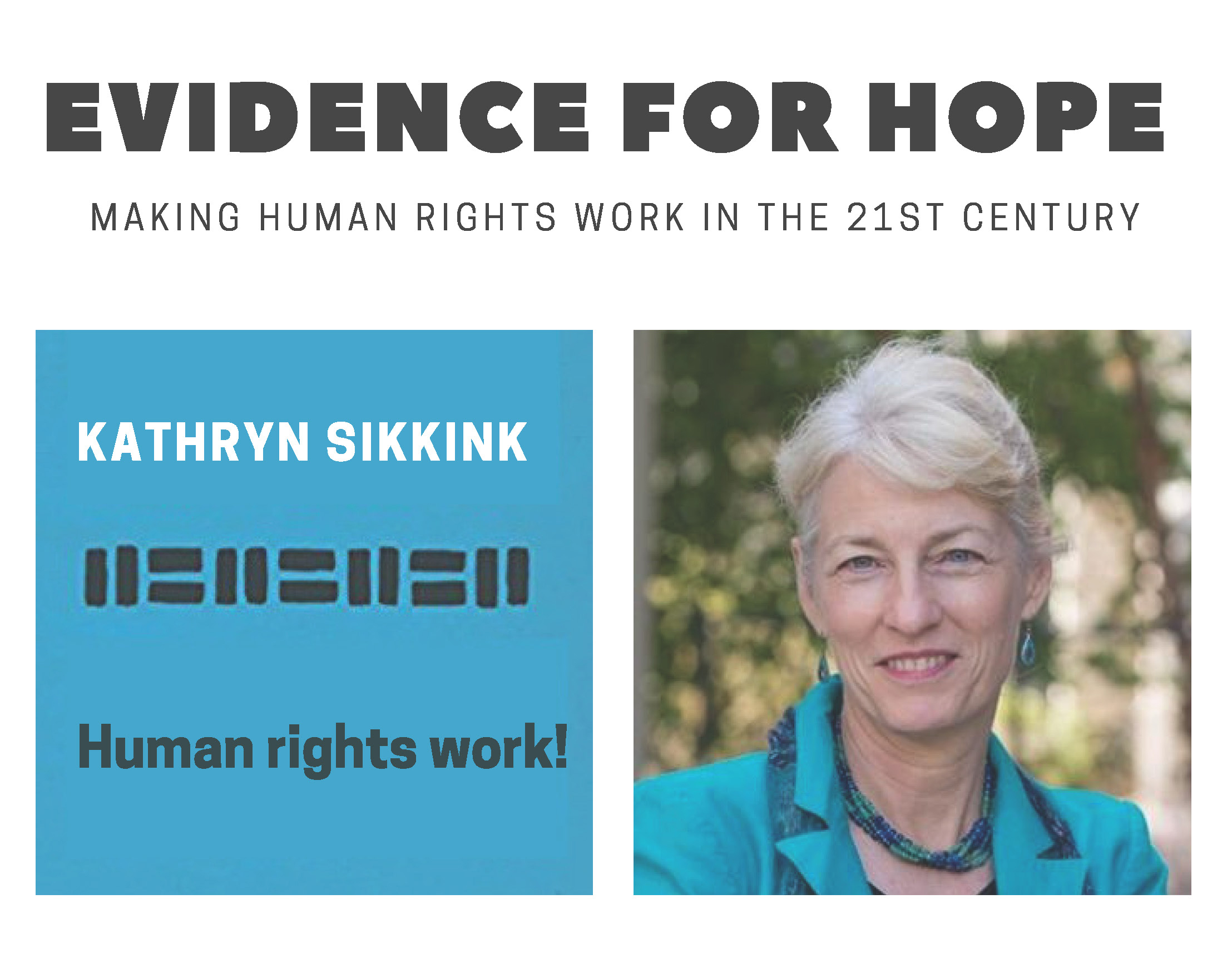
Evidence for Hope: Making human rights work in the 21st century
On November 3, 2017, the Harriman Institute, the Institute for the Study of Human Rights and the Columbia Political Science Department hosted a book talk with Kathryn Sikkink (Harvard University). In the event, Professor Sikkink presented her newest book: Evidence for Hope: Making human rights work in the 21st century (Princeton University Press, 2017).
Critics of the human rights system say that the movement is at risk or even it is an expression of the Western imperialism. Professor Sikkink deeply disagrees with them, and Evidence for Hope makes a straightforward case that yes, human rights really work. According to her research, the human rights long term history is positive, that is, the human rights international movement has been contributing to produce effective changes.
Actually, what occurs is a kind of methodological problem. And Professor Sikkink’s book intends, as she showed in her presentation, to address this problem. The methodology of human rights organizations is to highlight the violations, however; this method does not necessarily work for human rights academics. Thus, Evidence for Hope aims to establish a common starting point and, to do this, it claims for methodological transparency in the human rights academic literature. In her presentation, Professor Sikkink asserted that human rights literature needs to state its comparative ideal, that is, the ideal mobilized to face the reality. Without it, it is very hard to establish a consensus on what is the dependent variable of human rights academics. In other words, it is a condition for a fruitful research journey that human rights academics agree on if the world is getting better or worse.
In her presentation of extensive data, Professor Sikkink argued that the world is getting better in many senses, like decreasing deaths caused by wars, less genocides, less countries applying death penalty, less famine and starvation. An important exception would be refugees’ situation. So, the idea that human rights do not advance and they are not effective in making the world a better place is a myth, according to Sikkink.
Thus, in Sikkink’s view, the human rights academic community has to focus on improvement trends and not necessarily on the complete cessation of human rights violations, as many organizations advocate for. Professor Sikkink affirmed that only by looking to the trends on specific rights and not just to the current data, human rights academics would be able to demonstrate the transformative potential of human rights international law and movements. Analyzing historical trends will allow overcoming a paradox: human rights movements produces data about violations more than ever, and this very data is utilized by critics to support their case that human rights have been not working.
Therefore, Professor Sikkink defends and demonstrates that human rights international law, institutions, and movements are – not without temporary struggle and failures – effective in the long term. However, she also noted that human rights academics must to be conscious that sometimes the work of activist unintentionally produces perceptions that human rights are in crisis. As nowadays they produce much more information on violations, demand more rigorous and comprehensive human rights standards and pay much more attention to violation than to the rights enjoyment, human rights organizations contribute to create this perception of crisis by their own work.
In Evidence for Hope, however, the respected human rights expert Kathryn Sikkink, supported by decades of research and fieldwork, counters the skeptical doubts on international human rights law and institutions. Presenting strong evidences for hope without complacency, Professor Sikkink demonstrated to Columbia students, faculty, and staff that international and transnational human rights movement really matters.
Matheus Hernandez is a Visiting Scholar at the Institute for the Study of Human Rights at Columbia University and International Relations Professor at Universidade Federal da Grande Dourados (Brazil). He concentrates his research on UN Human Rights System.





